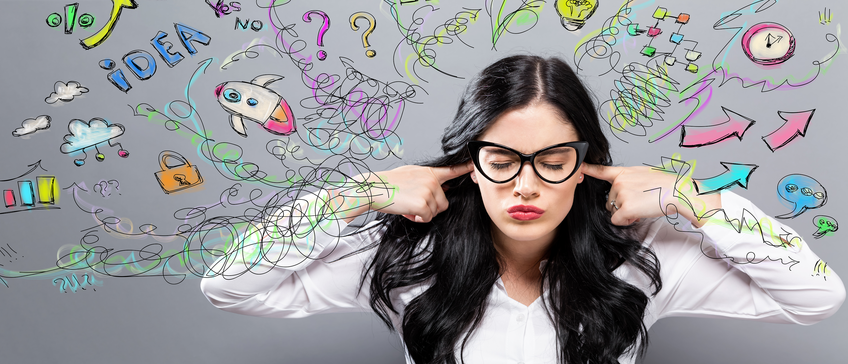Stress: Too much of everything!
For many people stress seems to have become everyday life. However, much is still unknown about this "new normal state“. Where does all this stress come from? And why are some people able to handle it better than the others? How does it influence the brain and which strategies are effective to manage it? Several research teams at the Max Planck Institute for Human Cognitive and Brain Sciences (MPI CBS) want to get to the bottom of this phenomenon.

Deadlines at work, permanent reachability, daily commuting, being there for the children – more and more in less and less time. We feel constantly under pressure. Stress has become a widespread dilemma and according to the world health organization (WHO), one of the major health concerns of the 21st century. Yet, in the modern world we're no longer exposed to the original stressors that our bodies evolved to deal with, such as life threating situations. Many of us live in a peaceful land, have enough to eat, a roof over your heads and lots of amenities to top it off.
However today we experience much more social stress, meaning situations that we perceive as unpredictable and uncontrollable and that threaten our egos. "Our body can react to these tests more or less in the same way as we would if our lives were at risk“, says Veronika Engert, leader of the new established research group "Social stress and family health“ at MPI CBS.
In such situations the adrenal glands secrete more adrenalin and the stress hormone cortisol, the body uses up available energy stores, the cardio-vascular system activates, the muscles tense, and the immune system is modified. Though these reactions are not as intense as under life-threatening conditions, they're strong enough to influence our health in a permanent manner. "Many people lead a life in which their stress systems are constantly active, as there is almost no time for silence and shutting down“, Engert states. "We’re continually exposed to too much pressure, parallel activities, noise, advertising, and social comparison.“
"Stress is a very subjective feeling"
Even people who objectively shouldn't feel stressed all the time do, if for instance they have no children, no money troubles, or work half-days. "Stress is a very subjective feeling. Humans own very different load capacities“, the professor for social neuroscience says. Furthermore, for many people, fear plays a crucial role. Insecure, anxious persons perceive situations as threatening, which might be stimulating for others. "Permanent threat steals a lot of energy“, Engert explains.
"It's also true that today there is much more awareness of stress than previous times and there are less inhibitions to calling ourselves stressed", Engert states. However, there is a lot of evidence that we face an additional burden today. Many people suffer from autoimmune diseases, cardiovascular disorders, and depression. Stress at work means, according to WHO, a 50 percent higher risk for coronary heart disease, which in turn leads to heart attacks.
What is clear is that stress itself is not bad. On the contrary, it activates us and prepares us for challenges. It's not for nothing that the level of cortisol reaches its circadian peak half an hour after getting up. "We need this to be ready for the day“, says Engert. On weekdays or exam days this awakening response is much higher than on weekends. The level and handling of stress is crucial. "A level of cortisol that is constantly too high is what makes us sick.“ This is even visible in the brain. Previous studies have shown that chronic stress during childhood leads to a smaller hippocampus, a key structure involved in memory, later in life.
What makes people feel stressed out? "Situations in which their egos are threatened, for example, if their competence is called into question, situations they experience as uncontrollable and unpredictable", she explains from her own study results. "These situations have become more common in our daily lives. Today we have to prove ourselves from childhood onward, and now in front of bigger virtual crowds on social media."
In the up-coming years Engert and her team do not just aim to figure out how personally experienced psychosocial stress influences our behaviour and health. They're also eager to examine how contagious stress can be. How does the load of our partner, parents, or colleagues affect us? They're currently looking at how much a child is strained by watching their mother in a stressful situation. Their previous experiments have shown that ten percent of the people are affected by the stress of strangers, if watching them performing under pressure. That number rises to 40 percent if the stressed individual is their partner.
But that is not where they stop. The researchers are also looking at options to reduce the health risks of stress in the long term. Here they focus on cognitive methods. They've already found that several months long intensive training in perspective taking, compassion, and other social capabilities can reduce the amount of cortisol released after acute stress. However, it is still unclear whether these meditation-related techniques have an influence on other health factors such as the immune system or psychological patterns such as positive, selfish, or forward-looking thinking. "This is what we would like to figure out", says Engert confidently.


